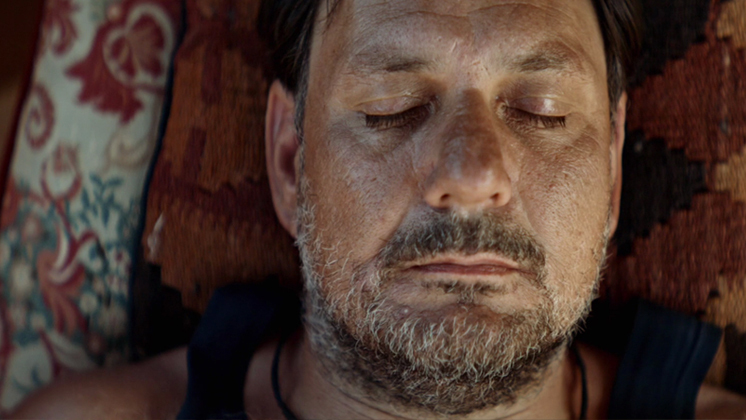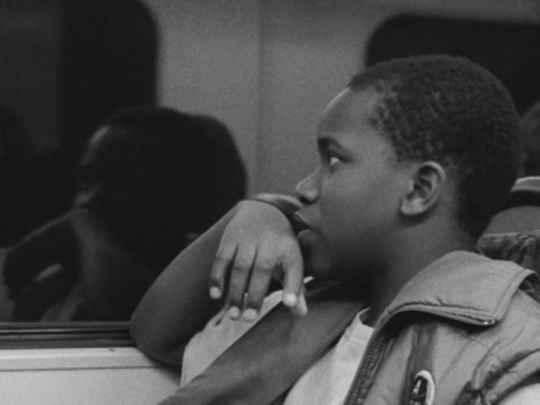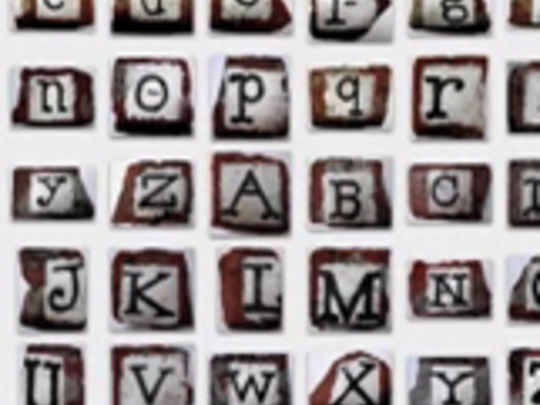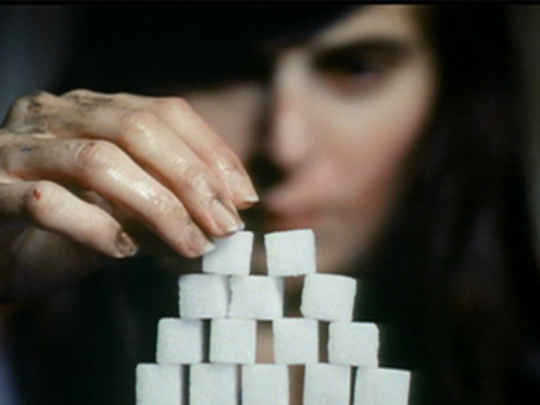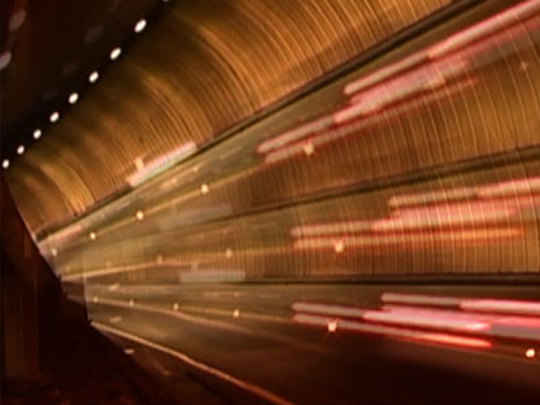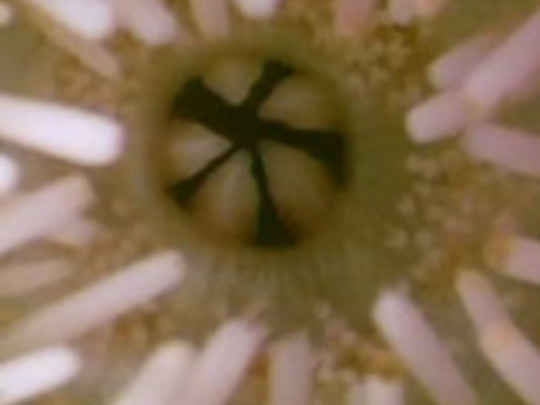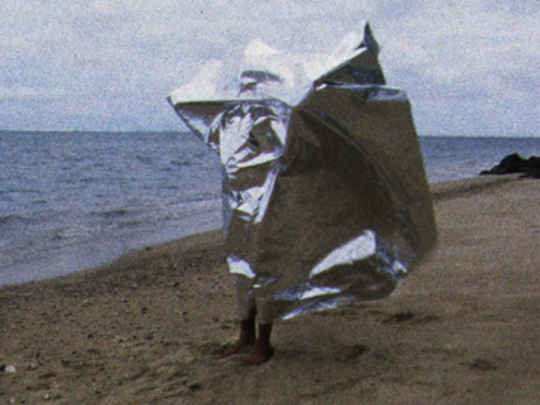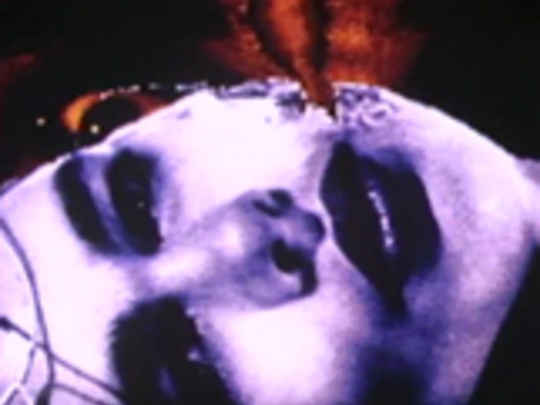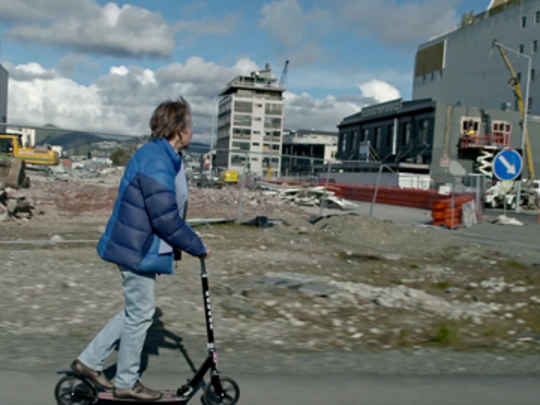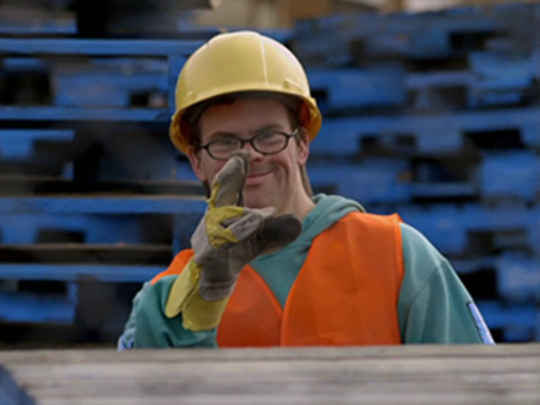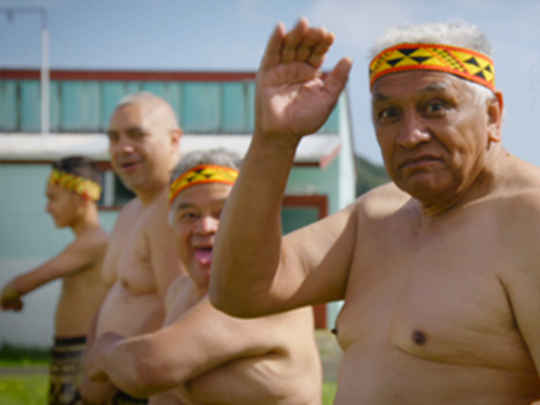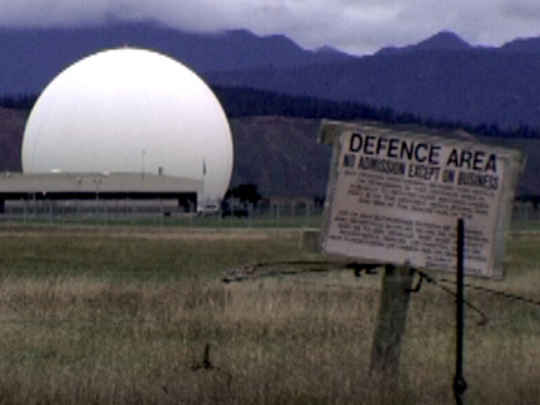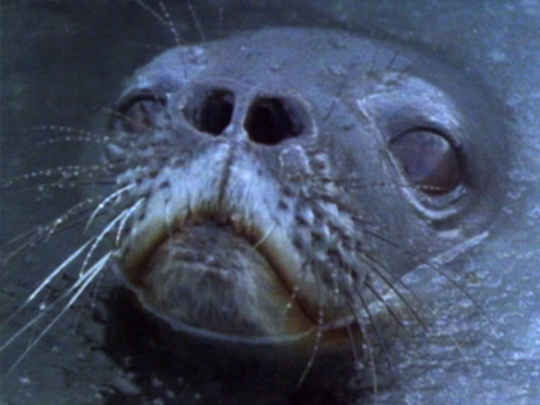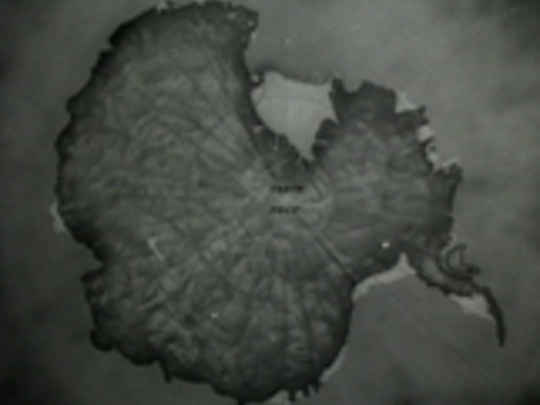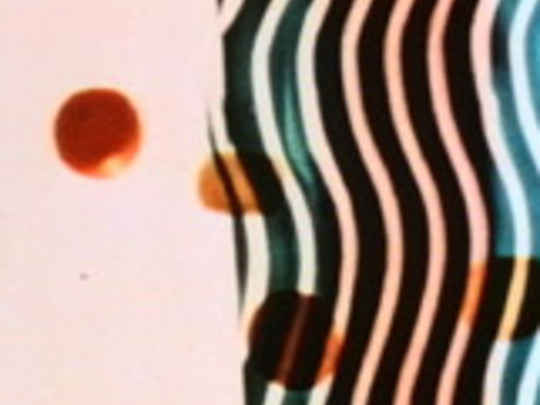For the Di Tracey sequences, they spent three weeks on a research ship as it sailed rough waters south-east of New Zealand . . . [The film] is about exploration — of the sea, of sound and of oneself. [Directors Adam] Luxton and [Summer] Agnew felt like explorers as well, never quite sure where they were heading and discovering meanings and connections only as Luxton edited the film back in Berlin.
– Writer Philip Matthews in The Press, 4 August 2016
I wasn’t really prepared for the level of human impact; it’s just a wasteland down there. We’re cruising along for a kilometre and it was just a desert of smashed up coral as a result of deep-sea trawling. It wasn’t like seeing partially impacted or a slightly scruffy seabed, it was just mowed down . . . Then you find out that coral will grow back at one millimetre per year. . .
– Co-director Adam Luxton on capturing images of the seabed east of New Zealand, in an interview with website The Pantograph Punch, 19 July 2016
In one strand of the film, [sound artist Bruce] Russell walks through the quiet ruins of post-earthquake Christchurch and constructs abrasive sound art from old, possibly obsolete equipment. In another strand, marine scientist Di Tracey surveys a seabed that has been ravaged by trawling . . . For the third strand, Luxton and Agnew brought in David Hornblow, an occasional actor and qualified drug and alcohol counsellor. He created an "apocryphal" character and was given different terrain to examine.
– Writer Philip Matthews describes the film, The Press, 4 August 2016
. . . it's like a bloody drift net fishing through your mind isn't it.
– David Hornblow describes a hypnotherapy session
All the shadows of who used to be in this city are still there . . . It's like after a nuclear flash, but it wasn't that. They're just gone.
– David Hornblow's character describes Christchurch after the quakes
...[a] ground zero perspective of human life in the anthropocene; damaged, bruised, and in need of a fresh breath of air.
– Directors Adam Luxton and Summer Agnew describe On An Unknown Beach
One of the most beautiful and questingly intelligent films at this festival.
– Metro reviewer David Larsen, in a list of highlights from the NZ International Film Festival, 1 August 2016
If I had to provide a case-in-point instance of “high risk film”, that would do nicely. In this case, high risk translates to high rewards. The film requires effort — do not come to me later and complain that I didn’t warn you there’d be work involved — but it’s dazzling. It has the helpful virtue of being stone-dead gorgeous; the cinematography is hypnotically good from first to last, meaning that when you find yourself not grasping something, and that will happen, you can relax into the beauty of the moment.
– Metro reviewer David Larsen, describing the film as one of his picks from the NZ International Film Festival, 1 August 2016
For those on its wavelength, On an Unknown Beach is an absolute treasure, an uncommon achievement of intuitive genius and one of our country’s great films.
– Filmmaker and critic Doug Dillaman, on website The Pantograph Punch, 9 August 2016
The film brings together three searchers — in addition to Christchurch native [Bruce] Russell, who wanders the damaged city making noise music while considering long-rejected digressions in 17th century thought, there’s an undersea researcher exploring coral damage caused by trawling and a poet undergoing hypnotherapy — all while searching for connections internally. Set amongst various landscapes of ruin, filmmakers Adam Luxton and Summer Agnew have nonetheless made one of the most beautiful films of the festival. . .
– Reviewer Doug Dillaman on website The Pantograph Punch, 9 August 2016
On An Unknown Beach is a cosmic journey into the interior of the sea, the city, and the soul. With this film we experience how water, earth, and air can suffer the destructive force of waves of catastrophes, as well as the healing rhythm of regeneration.
– Writer Guiseppe Di Salvatore, on Swiss website Film Explorer, 10 May 2017
All three narrations weave around each other —sometimes dream-like, sometimes solidly in reality. They each at some point offer a reward of some kind, with these rewards varying from revelations and epiphanies to humour and also to a kind of horror when we learn what is really happening under the waves.
– Flicks critic Alan Holt in a four star review, 5 August 2016l
